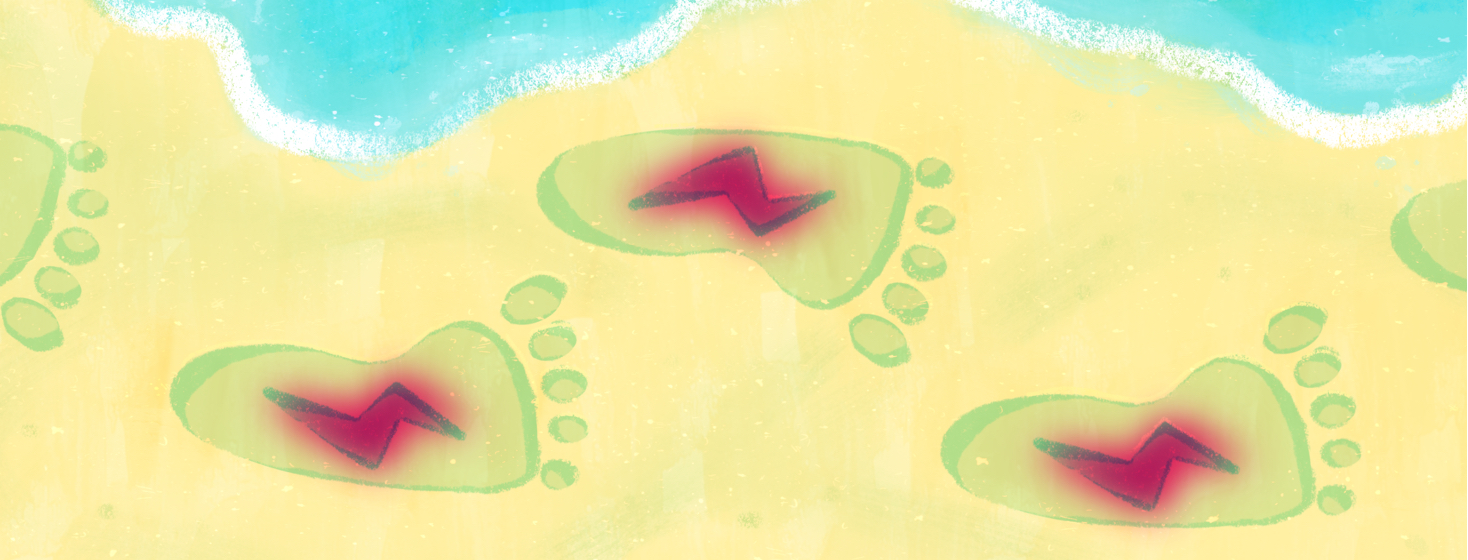I Don’t Like Long Walks on the Beach: Dating and Chronic Pain
For anyone, dating can be scary — putting yourself out there, being vulnerable, and hoping that the other person accepts you. Having a chronic illness adds another dimension to that fear of non-acceptance. Although I’m very confident and sure of myself, there is still a voice in my head that says, “what if they don’t like me because I’m chronically ill?”
I can't predict what other people think
Even though I know that my chronic illness isn’t a negative trait and doesn’t make me any less worthy of love, I can’t predict what other people will think. Will they be judgmental? Will they treat me differently? Will they think I’m not worth it anymore? These are the things I think about when I meet someone new. I don’t want the fact that I have a chronic illness to cloud my other qualities.
Although my chronic illness isn’t all of me, it’s important for anyone in my life to know what I live with, why I have to avoid certain activities, and what kind of support I need. I don’t keep friends around if they’re ignorant about my illness, so the same goes for romantic partners. For someone to get to know me past a surface level, they have to learn about my AS journey thus far and how it affects my day-to-day life.
I don't put my AS front and center
The first step is deciding when and how to tell someone that I have ankylosing spondylitis (AS), a form of axial spondyloarthritis. I use dating apps like every other single 22-year-old does, but I don’t put my chronic illness front and center, because I want people to get to know me before they judge me based on my illness. I’m not trying to hide it, but there are so many other aspects of me that are more important to know first. However, maybe if I did put my chronic illness on my dating profile, I could easily weed out the judgmental people that I wouldn’t want to date anyway.
As I get to know someone, I usually bring up my chronic illness as soon as I’m comfortable. I’m lucky to never have received a bad reaction, but I know other chronically ill people who have — including insensitive comments, invasive questions, and flat-out rejection. Other times, I’m forced to bring up my illness early on, if I need to tell someone that I can’t do a certain activity, for example. And sometimes, I never end up telling them at all because they don’t make it that far.
There's a lot of misconceptions
Even though I haven’t experienced a bad reaction so far, it could happen. Many people are not educated on chronic illness, so they have misconceptions. They might think that me being chronically ill means I don’t have much longer to live, that it’s contagious, or that I’m not fun to be around. The more we can reduce stigma around chronic illness and disability, the fewer potential love stories will be thwarted by judgment.
Getting coffee is good for my pain and easy to cut short
Another factor, beyond telling someone that I have AS, is the actual dates. I have to avoid activities that will cause me pain, but at the same time, I don’t want to seem like I’m being picky or complaining. I try to pick short first dates, like getting coffee, not only because it’s better for my pain, but also because being stuck on a 4-hour date with someone you don’t like sucks. I’m getting better at speaking up about what I need, and I have to hope that most people will understand.
I know that I'm a great person to date
I wish I didn’t have to worry about being rejected for having a chronic illness, but that’s the reality of our judgmental society. People don’t want to deal with the “complication” of a partner with a disability, even if they have no idea what it entails. The important thing is that I know that I’m a great person to date. Hopefully, the right person comes along who thinks so too.

Join the conversation